How Juli Kaufmann Is Fixing Milwaukee
Her Fix Development takes on high-risk developments in transitional neighborhoods.
What a difference a few — or more– beers can make. Juli Kaufmann jokes that she decided to leave the corporate world and launch a real estate firm after drinking too much beer. Launched in 2004, it was called Pragmatic Construction, and Kaufman operated it with two partners; they did more $10 million in environmentally-friendly residential projects by 2008. But that work, which included a pair of green homes in Riverwest, came to a halt when the Great Recession decimated the real estate market. Kaufmann amicably left the firm to start Fix Development and that’s when she really found her calling.
She set her sights on Walker’s Point, developing the project she’s best known for, the ultra-green Clock Shadow Building in Walker’s Point. But its diverse mix of tenants also made the project special. When the building opened it was home to the only urban cheesemaker in Wisconsin — Clock Shadow Creamery — plus Purple Door Ice Cream, non-profit wellness organization CORE/El Centro, a community clinic run by health care giant Aurora and several other tenants.
Fix Development partnered with the Walnut Way Conservation Corp. to develop the first phase of the Innovations and Wellness Commons. Today, the building at 1609 W. North Ave. is home to an Outpost Foods pop-up grocery store and The Juice Kitchen, a smoothie and juice bar.
At a time when developers are competing to build Downtown, few if any are interesting in taking on a depressed or transitional neighborhoods. The first phase of The Commons project sits on the southern border of the 53206 zip code, Milwaukee’s most impoverished area. The $6 million dollar project, which opened in 2015, ultimately drew financial support from both the federal and state governments, as well as the Zilber Family Foundation. Fundraising for the second phase of the project, which would add a wellness center and more permanent home for Outpost, is currently underway.
Investing in People
The Commons isn’t Kaufmann’s only project in Lindsay Heights. In January, Kaufmann and Lindsay Heights resident Jeremy Davis completed a crowdfunding campaign to jump-start the redevelopment of the historic Wally Schmidt Tavern at 1848 W. Fond du Lac Ave. into a sit-down restaurant with office space above. The campaign raised over $37,000 to fill a gap in the half-million-dollar-project budget, with about $6,000 of that amount going to reduce the project’s construction loan.
Why is Kaufmann engaged in not one, but two projects in an area of Milwaukee often overlooked by real estate developers? Kaufmann’s rather lofty goal is to create a “socially just, environmentally sound world,” but that also requires very nitty-gritty, down-to-earth goals. She partnered with Davis in order to provide hands-on learning to the neighborhood resident. The hope is that with skills Davis learns he’ll be able to execute other projects in the area and reverse the cycle of disinvestment.
Kaufmann is planning to bring that same skills transfer process to the South Side next. She’s in the early stages of planning a project with Tim Syth in the Silver City area to renovate a 100-year-old building at 3524 W. National Ave. into incubator space for neighborhood professionals. She is starting to build of cadre of like-minded developers seeking to transform neighborhoods.
While Kaufmann’s development of the Clock Shadow Building looks like a no-brainer today, it was anything but at the time. When the project was conceived Walker’s Point wasn’t a restaurant hot spot and S. 2nd St. was mostly seen as a convenience for cars, a racetrack from Downtown to the South Side.
Clock Shadow Building Grand Opening (2012)
Kaufmann, who built a home and small office in the neighborhood, was committed to improving the area and went to work. When S. 2nd St. was up for repaving she led an effort to redesign the street in a more pedestrian-friendly manner. Her efforts won accolades from GOOD Magazine in 2009 and ultimately won over City Hall and the Wisconsin Department of Transportation. The street was narrowed, creating bicycle lanes, more space for sidewalk dining and helped encouraged countless restaurants and bars to invest in the area.
Her efforts at community revitalization haven’t gone unnoticed. Milwaukee Mayor Tom Barrett is effusive in his praise for Kaufmann, stating “Juli’s passion for community development projects and her willingness to take risks have lead to great rewards for Milwaukee.” Barrett honored Kaufmann’s Walker’s Point project with a Mayor’s Design Award in 2012.
The $7 million Clock Shadow Building, designed by Continuum Architects, also won top prize at the Wisconsin Green Building Alliance’s 2013 award show. The project was also honored by the American Institute of Architects for meeting the quadruple bottom line mission of economic improvement, social justice, environmental restoration, and cultural celebration.
Local Investing
Kaufmann’s impact on Milwaukee hasn’t only been about bricks-and-mortar. As Barrett notes: “Whether it’s Radio Milwaukee, Bublr Bikes or Fund Milwaukee, if someone is doing something innovative in the community, chances are, Juli is involved.” Fund Milwaukee, which she helped create, has invested over a million dollars in local business start-ups. They bill themselves as “a group of average Milwaukeeans, from all walks of life, every age group, and many different professions coming together to invest our money locally and fund Milwaukee businesses.”
Its members offer low-interest loans or equity investments which give them a very modest return. As Kaufman once put it, “We are not venture investors, we are believers in Milwaukee and each other. Our returns are not only measured in an interest rate, but in building local businesses that mirror our values, in nurturing entrepreneurs that give back to our city and our people. This is not lip service, it is deeply meaningful to all of us.”
Their investments have helped create jobs, filled vacant storefront space, contributed to the diversity of the emerging culinary scene and helped foster a startup business mentality in Milwaukee, something sorely lacking.
Kaufmann’s own investments through Fund Milwaukee range widely in their business models, but all have one unifying characteristic: they’re distinctly local businesses. She’s invested in breweries, including Brenner Brewing and recently opened Good City Brewing, an ice cream company (Purple Door), a liquor-store/bar hybrid (Draft & Vessel), restaurant (Amalinda), bicycle shop (Coast-In Bikes), urban agriculture start-up (Central Greens), the Bobblehead Hall of Fame and many more. When Kaufmann extols her business ethos of investing in “main street businesses,” it’s clear she’s put her money where her mouth is and Milwaukee is better off because of it.
Bublr Bikes, Radio Milwaukee
What’s more local than beer and dairy products? Nowadays in Milwaukee it’s bicycles, which are a key part of the Milwaukee millennial culture. Kaufman is out from there, too, as a founding member of the Bublr Bikes board of directors. In fact, the most likely place to see Juli Kaufmann is cruising down a city street on a bicycle.
Bublr has big expansion plans. The Trek-powered bike-sharing system launched in 2014 with 10 stations and will expand to a network of almost 60 in the next two years. The end goal is to build a sustainable system with 100 stations and 1,000 bicycles.
Radio Milwaukee has been growing, too, with help from Kaufmann, who is a board member of the community radio station. With her real estate background, Kaufmann helped guide the selection and redevelopment of the new home of Radio Milwaukee. It’s on E. Pittsburgh Ave. in Walker’s Point, within walking distance of the Clock Shadow building, just two of the dots on the map of cool, Kaufmann-influenced city developments.
What’s next for Juli Kaufmann? She’s notoriously coy about she’s up to next, but sources are hinting at a massive green roof project on the edge of Downtown. Stay tuned.
Eyes on Milwaukee
-
Church, Cupid Partner On Affordable Housing
 Dec 4th, 2023 by Jeramey Jannene
Dec 4th, 2023 by Jeramey Jannene
-
Downtown Building Sells For Nearly Twice Its Assessed Value
 Nov 12th, 2023 by Jeramey Jannene
Nov 12th, 2023 by Jeramey Jannene
-
Immigration Office Moving To 310W Building
 Oct 25th, 2023 by Jeramey Jannene
Oct 25th, 2023 by Jeramey Jannene


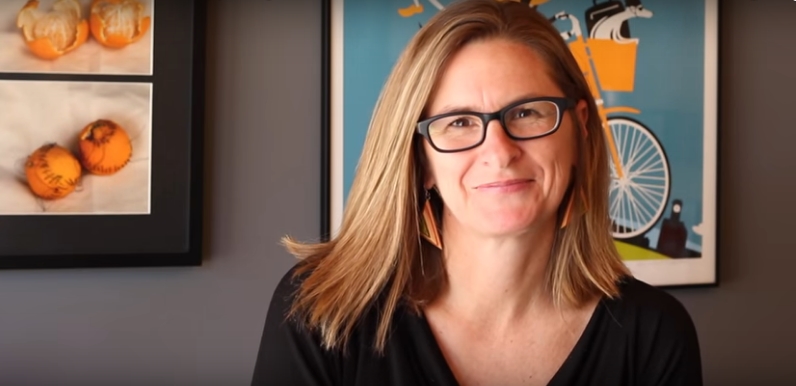
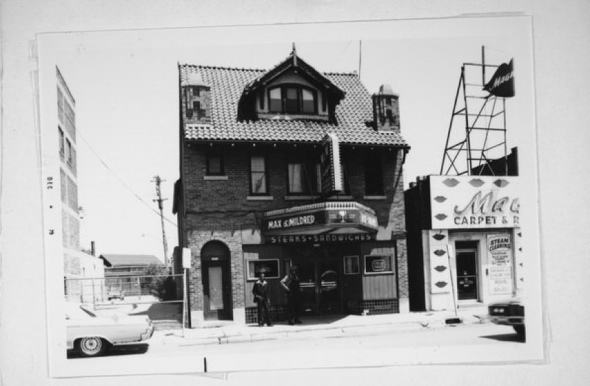
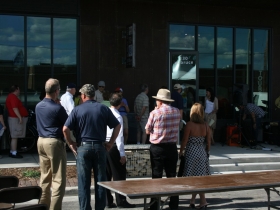
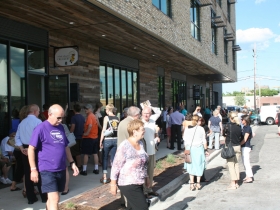
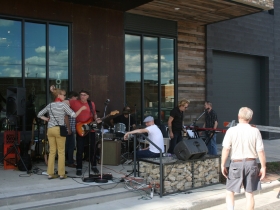
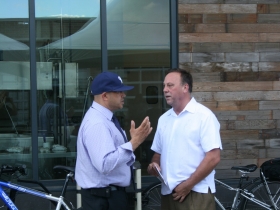
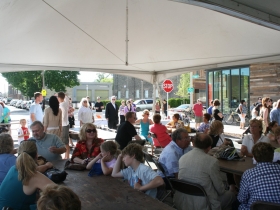
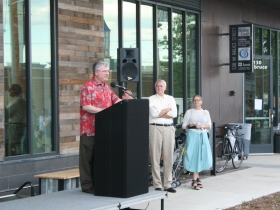
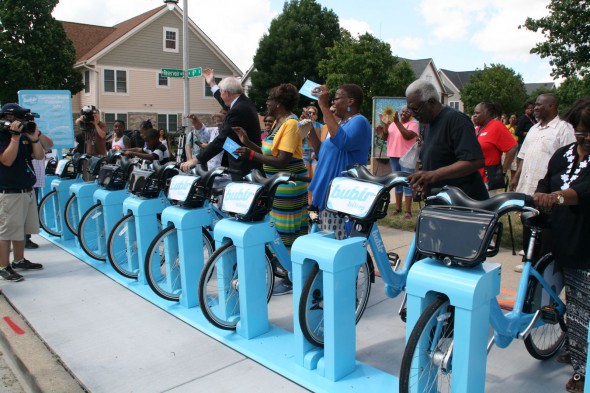















She appears to be Milwaukee’s Juli Appleseed. Jeramey, thanks for connecting the dots about all the projects this visionary and change agent has undertaken or supported.
Her statement about Fund Milwaukee is powerful: “We are not venture investors, we are believers in Milwaukee and each other. Our returns are not only measured in an interest rate, but in building local businesses that mirror our values, in nurturing entrepreneurs that give back to our city and our people.”
Since small businesses are responsible for a huge percentage of new jobs, efforts like these can have a big impact–incrementally. And redesigning South Second Street as a pedestrian and bike-friendly “Complete Street” project has been a big boon for that area’s economy.
Hats off to Juli and her partners in all these efforts!